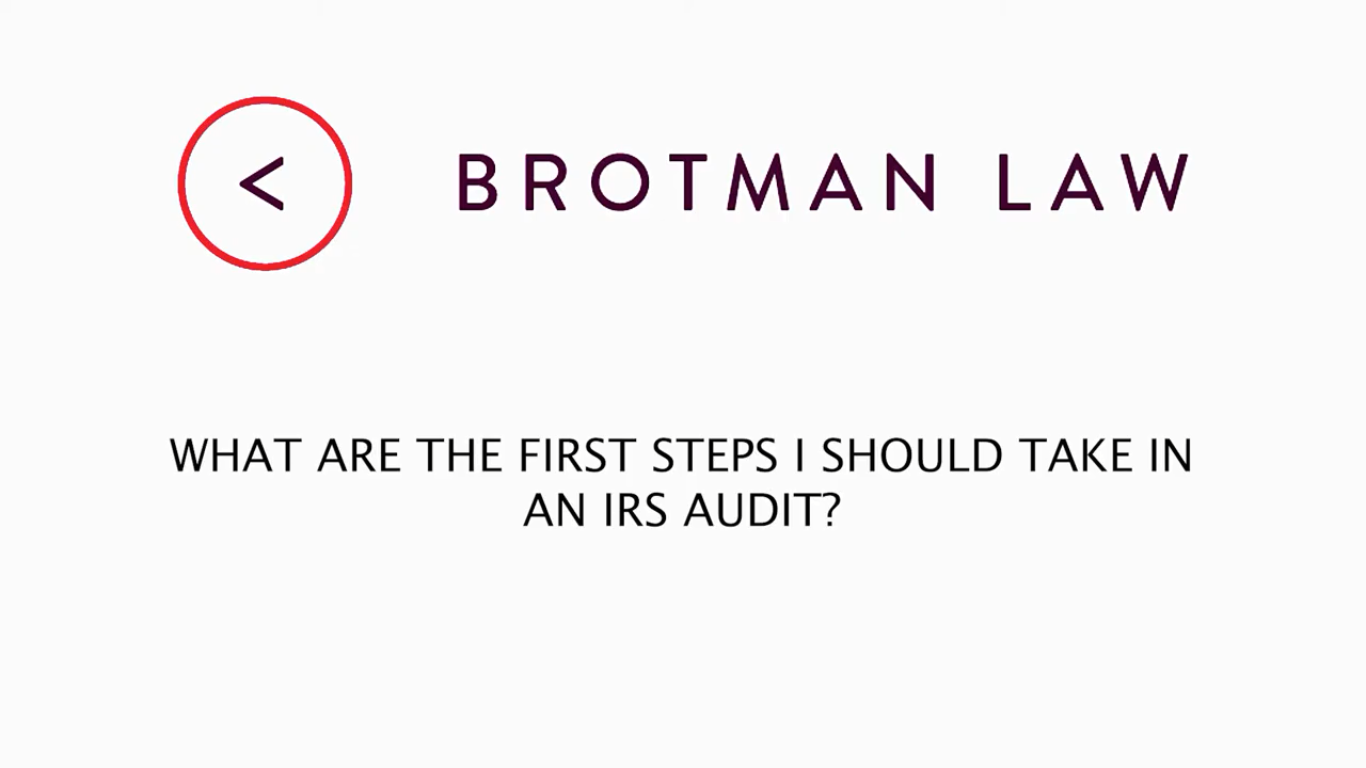The first steps you should take in the audit are to gather your documents and to understand your risk. The first thing that we look at when we have a prospective client come into the firm is why we think the returner got audited. Every return tells a story and it’s only a matter of time before we go through the return and learn what that story is. In speaking with taxpayers what we often find is that people either lack
the records to support their return or the story that their return tells doesn’t make a lot of sense or at least poses some additional questions that somebody would want to ask. So the best thing that you can do is gather all your documents together to make sure you have the substantiation to defend the return and then start by understanding what your risk is. If you need help in understanding what your risk is, and most people do, I recommend that you come and see us or go see another qualified tax professional in order to get a risk assessment for what you’re facing in an audit. Keep in mind that even if you think you didn’t do anything wrong there’s a reason that the IRS wants to audit you. They think that there is additional tax due and owing, and they intend to collect it from you, so in understanding what their motivation is for auditing you or potentially what they could be after by addressing that issue in advance, you’re going to go a long way to mitigate the consequences of the audit. What we do with our prospective clients is we work with them to build a plan and develop an audit strategy around the weak points that we feel are in the return and then work with the client to pre-audit their return so there won’t be any surprises by the time we meet with an auditor. By doing that, we can really mitigate their risk and their cost exposure when the IRS gets a hold of the return.
